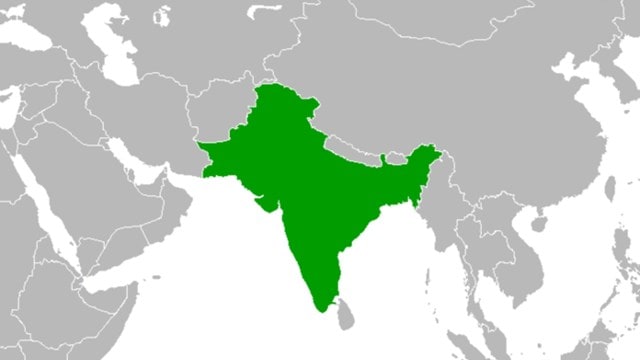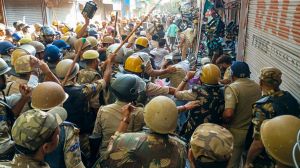The Grief of a Punjab Lost
With her family history, advocate Malavika Rajkotia pens a story of Partition, Punjabiyat and the scattering of a people united by language and land
 Part of the memoir is devoted to life in Karnal, where Rajkotia’s family was raised. (Image credit: Wikimedia Commons)
Part of the memoir is devoted to life in Karnal, where Rajkotia’s family was raised. (Image credit: Wikimedia Commons)Two fiction characters have made their way to Partition history: Karan, from Mahabharata, whose name forms the basis for Karnal, the town in Haryana that became home for a man fleeing Pakistan’s Punjab province after finding himself a persecuted minority; and Oblomov, the titular aristocrat of the 19th century Russian novel who conducts all his business from bed, much like the same Punjabi man who, after a lifetime of fulfilling his family duties and missing the home he can’t return to, decided one day that he’s done: “I’m not getting out of bed,” he said to his family.
Advocate Malavika Rajkotia, the daughter of that man, has penned the story in Unpartitioned Time (Rs 599, Speaking Tiger), a book that uses her family history to explore Partition’s effect on subsequent generations of Punjabis, the scattering of a people that were united by language and land, and the many Punjabi dialects that have died in the decades since.
At a launch in Delhi’s India Habitat Centre last month, she discussed how the book began as a letter to her recently deceased father, and accrued pages to protest against the political order that suddenly turned millions into refugees: “Whether (the Sikhs) fought for the British in World War II… or for the freedom struggle with the Congress, or lost their lives as members of the Ghadar Party… or via the Communist left… they all served… the cause of the nation. That new nation then drew a dagger across the Punjabis, who left their souls in the places from where the bodies were removed.”
Part of the memoir is devoted to life in Karnal, where Rajkotia’s family was raised. It was far from the privilege and social capital her father commanded in Punjab, a status he eventually responded to by “withdrawing into inactivity”. In Haryana, the family farm rarely turned a profit, food was often bought on loan, and the children tended to their parents’ marital strife. Where the father was conservative and supported feudalism, the mother was a staunch leftist; where he was an English-speaking sophisticate, she didn’t know the language well and had been raised on Sikh scriptures.
Even before the marriage, however, Rajkotia’s father was made to feel like an outsider. Having lost the wealth that once defined him, he was sometimes seen as being born in ‘enemy territory’, sometimes as a refugee who only maintained the appearance of wealth. “The table never suffered, but I remember my father once saying that even the black grapes on the table were on debt. It took me a long time to enjoy black grapes again,” said Rajkotia.
As she and her sister grew up and moved out of the house, family dynamics changed. Though their parents’ relationship survived, the daughters noticed their father struggled with addiction and depression. “It was sheer love for family that made him work to be alright. But at some point, even though he had an opinion on the news and loved meeting us, he stopped wanting to get out of bed. We’d sit around him and have meals. I don’t think we patronised him by indulging this eccentric behaviour. We wanted to respect his way of being,” said Rajkotia.
She discussed how moving to Delhi for studies and later raising her family in the city made her stop talking in Punjabi to her children, something she tried to counteract by urging her parents to not do the same. “I don’t know why it happened. Maybe because Hindi was just the way to navigate your life in the city,” she said. Audience members of various ages, with roots on both sides of Punjab — including Chandigarh, Lahore, Rawalpindi and Gujranwala — attested to how the generation that migrated through Partition often spoke to their descendents in Urdu or Hindi instead of Punjabi.
“Language forms such an important part of the environment at home,” she said. “I’m always hopeful about (punjabiyat being recovered), but the language spoken among us in Delhi isn’t familiar anymore. My generation of Punjabis from Lahore speak Punjabi with a tinge of Arabic or Urdu, different from my mother’s Punjabi which was soft, rounded and included Persian words. That’s going to die with my parents’ generation.”







- 01
- 02
- 03
- 04
- 05
























